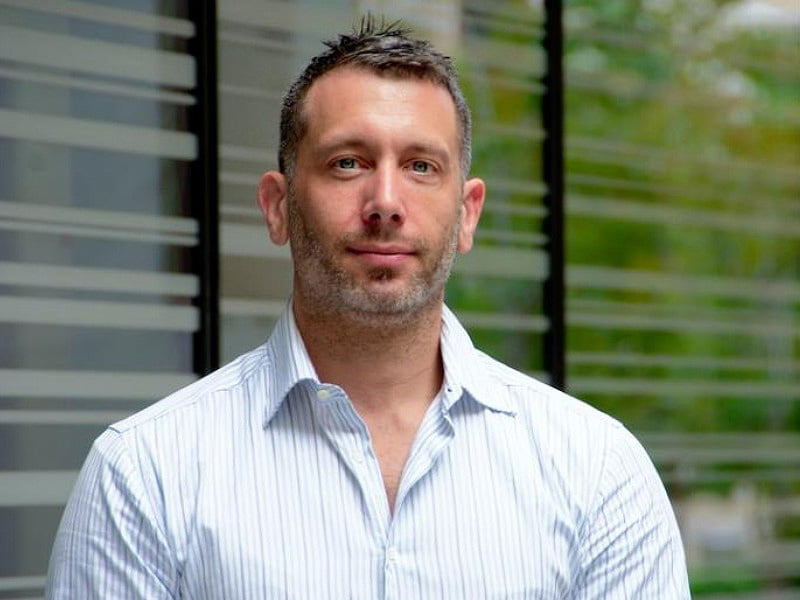Australian tech company Q-CTRL has demonstrated that its software tools can deliver up to a 9000 times increase in quantum algorithmic success, marking an “enormous step” towards achieving quantum advantage.
At this year’s APS March Meeting – the world’s largest physics conference – in Chicago next week Q-CTRL will unveil new research showing that its software toolset can deliver thousand-times improvements to quantum computing using just conventional cloud access.
The problem with current quantum hardware is that it tends to break easily, and Q-CTRL aims to address this through its technology offerings, the company’s chief executive and Sydney University professor Michael Biercuk said.

The company’s advanced error correction techniques have been found to increase the likelihood of quantum computing success by as much as 9000 times.
This is a significant milestone in the pathway to achieving quantum advantage, the point at which quantum technology can solve a problem that no traditional computer can in a realistic amount of time, Professor Biercuk said.
“Roughly from where quantum computers have been before our demonstration a factor of 100,000 times improvement is needed to at least in principle be able to achieve quantum advantage. We have gotten up to about 9000 of that,” Professor Biercuk told InnovationAus.com
“We’re not all the way there, there’s more work to be done and some of that work will be done by us and some of it by our hardware partners. But we’ve taken a huge chunk out of what we see the required ground to make up is. Everything fundamentally changes when we hit quantum advantage.
“This is an enormous step towards realising quantum advantage. There is now a huge opportunity for quantum advantage to be realised years earlier than previously anticipated.”
This was achieved through Q-CTRL identifying pathways to use artificial intelligence and automation to improve on the errors that plague isolated quantum logical elements along with those appearing only in the execution of complete algorithms.
“We had big, consistent wins, and in some cases they’re outrageously large wins. This is exactly the kind of innovation required to make these machines useful. We have been able to show, with our partners, that we can transform quantum hardware which gives utterly random results into the correct answer. That is a binary change, from not useful to useful,” Professor Biercuk said.
These benefits will be available to quantum researchers and developers through Q-CTRL’s software and will also help startups looking to capitalise on the technology.
“There are so many companies interested in developing an algorithm for quantum but many are unable to demonstrate that their key insights work and they’re relegated to doing demonstrations on a regular computer – it’s a simulation of a quantum computer,” Professor Biercuk said.
“That’s not as satisfying to an investor. They can take their algorithm-level innovation and use our tools to show an investor that their solution has value. There’s a really wide base of end users.”
Q-CTRL was recently announced as a recipient of a federal government Modern Manufacturing Initiative grant, along with Fleet, ATSpace and Alauda Aeronautics. The government will contribute $20 million to the Australian Space Park, which will house the four companies.
Q-CTRL also last year scored a $4.5 million government manufacturing grant for its remote sensing technology for space.
The company will expand its American operations thanks to a $230,000 US government Small Business Innovation Research grant for a project looking at “automated calibration, characterisation and optimisation of near-term quantum processors”.
With a federal budget and election coming in the next two months, Professor Biercuk is hoping for more funding and support from the government.
“Government as a customer is a very, very powerful concept. That can be transformational, it can really move the needle on innovation. I’m keen for more investment that way,” he said.
“I’d like to see quantum funding in an order of magnitude more than what’s been promised so far to keep pace with the rest of the world. We would like it to move faster too. At Q-CTRL we’re ahead of the rest of the world by a big margin in terms of what our tech can deliver.
“What we are excited about is bringing all of this to market and developing sovereign capability, and we need a customer who is on the timescales that matter to use saying they want to buy our sovereign capability. I’m excited for further investment and streamlined and accelerated investment.”
Q-CTRL won the inaugural Australian Hero award at the 2021 InnovationAus Awards for Excellence last December.
Do you know more? Contact James Riley via Email.

